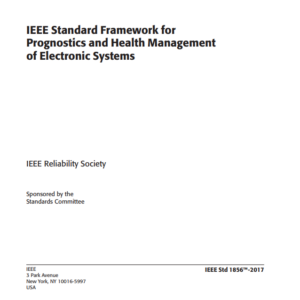Description
This standard covers all aspects of PHM of electronic systems, including definitions, approaches, algorithms, sensors and sensor selection, data collection, storage and analysis, anomaly detection, diagnosis, decision and response effectiveness, metrics, life cycle cost of implementation, return on investment, and documentation. This standard describes a normative framework for classifying PHM capability and for planning the development of PHM for an electronic system or product. The use of this standard is not required throughout the industry. This standard provides information to aid practitioners in the selection of PHM strategies and approaches to meet their needs.
Purpose
The purpose of this standard is to classify and define the concepts involved in PHM of electronic systems and to provide a standard framework that assists practitioners in the development of business cases and the selection of approaches, methodologies, algorithms, condition monitoring equipment, procedures, and strategies for implementing PHM of electronic systems.
Abstract
New IEEE Standard – Active. Information for the implementation of prognostics and health management (PHM) for electronic systems is described in this standard. A normative framework for classifying PHM capability and for planning the development of PHM for an electronic system or product is also described in this standard. Manufacturers and end users can use this standard for planning the appropriate prognostics and health management techniques to implement and the associated life cycle operations for the system of interest.


